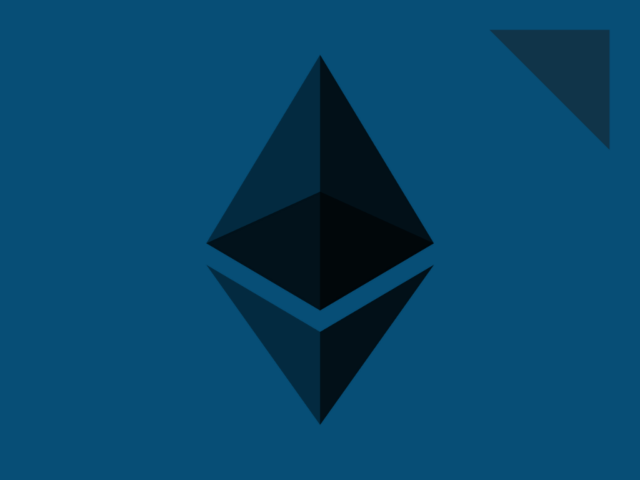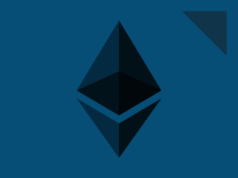Ethereum 2.0 is on the distant horizon, and people are looking for every and any piece of information they can on the subject.
Top talking points for Ethereum in the first couple of weeks of June 2019 are combined mostly of well-informed speculative information.
Some of the biggest stories also pertain to partnerships between the Ethereum Foundation itself and big players, such as Google and Polish bank Alior.
Top News
Welcome to our first bi-weekly roundup comprising the most discussion-worthy news content related to the (current) #2 cryptocurrency with regards to market-cap.
June 16th
Justin Drake: Ethereum 2.0 To Go-Live in January, 2020

Ethereum 2.0, which has been highly anticipated since its revelation last year, received a tentative launch date announcement earlier this June – with Phase Zero slated for a January 3rd 2020 release.
The date, likely a reference to the date of Bitcoin’s genesis block (January 3rd 2009), is attributed to a researcher on the project named Justin Drake AKA ‘Serenity’.
Drake dropped this news during a developer chat published on YouTube by Ethereum Foundation. He also stated that ‘Phase Zero’ of Ethereum 2.0 is scheduled for a full specification freeze on June 30th 2019.
Watch the full Ethereum (ETH) 2.0 Implementers Call #19 from 2019/6/13:
Even though the information comes from internally, it is still difficult to confirm as to when Ethereum 2.0 will actually come out. This is because Drake’s colleague Joseph Lubin conversely stated in an interview with Cointelegraph that he believed there was a strong chance the upgrade would be live this year, back in May 2019.
Consider this date as an unofficial announcement for now, and as such, it is subject to change.
June 17th
Top-10 Bank in Poland Launches Smart-Contract Document Verification Service on Ethereum Blockchain

Alior Bank SA,10th largest bank in Poland, announced a new feature which utilises the public Ethereum blockchain to provide document verification services -and have reportedly investing a $27 billion into the project.
It is an as-yet-unnamed project which implements a smart-contract which recalls and cross-references document data with that stored via blockchain -with the document name and block number where it is stored.
As it is a public blockchain, Alior has decided to create a front-end for customers to search documents received via its servers. The nature of the chain makes these record entries immutable; which can be verified directly by customers, who can use the system to browse their history of blockchain records.
Forbes spoke directly to Tomasz Sienicki and Piotr Adamcxyk (Blockchain Strategy Lead and Blockchain Technology Lead at Ailor, respectively).

Tomasz Sienicki contributed the following quotes to Forbes:
“Our mission is to be disruptive, so we want to provide innovative solutions, and we want other banks to follow us as well.”
“We welcome if somebody copied our solution,”
“We are showing that it’s possible to use public blockchain even if some people think it’s impossible.”
“Also said the blockchain-based system complies with all federal regulations.”
“We want people to verify that we did everything right and we don’t conceal anything. If we say the documents are actually verified and authentic, everybody can check it and confirm.. That’s not possible using a private blockchain.”
According to Piotr Adamczyk (who was in charge of writing the code for the project):
“We know exactly in which block of ethereum the document is published, so if we know the block number, we also know the timestamp,”
“We know that the document was published some time ago and hasn’t changed in that time, so we can prove it hasn’t been replaced on our servers.”
This isn’t the first example of Alior publicly showing an interest in distributed ledger technology (DLT), having establishing its so-called ‘Blockchain Center of Excellence’ in October 2018.
Even earlier, June 15-17, two members of the organisation participated in a ‘Blockathon’ (“a version of a hackathon in which participants have to solve a specific problem using block chain technology”). The event was organised by Unicorns House, sponsored by Trans.eu, and “strategically” sponsored by Alior Bank – who put forth the subject matter of ‘digital identity.
Among the participants was Tomasz Sienicki and Artur Wiśniowski (Blockchain Technology Expert, Alior), the former of which being a winning contestant.
June 13th
Taking Ethereum Seriously: Google Integrates Chainlink Oracles with Cloud Data-Assets
Google has published an article entitled ‘Building hybrid blockchain / cloud applications with Ethereum and Google Cloud’ which elaborates upon how developers can utilise “on-chain and cloud-based interaction with Ethereum decentralized applications and smart contracts”.
According to this article from Google, this is achieved through the use of its ‘BigQuery enterprise cloud data warehouse’ “automatically and on-chain by using Chainlink’s oracle middleware” – a decentralized oracle and intermediary between so-called traditional data sources.
The primary hypothesis of the piece appears to be that ‘Adoption of blockchain protocols and technologies can be accelerated by integrating with modern internet resources and public cloud services.’
“Applications of making internet-hosted data available inside an immutable public blockchain: placing BigQuery data available on-chain using a Chainlink oracle smart contract…. Possible applications are innumerable“
“Our examples generalize to a pattern of hybrid cloud-blockchain applications in which smart contracts can efficiently delegate to cloud resources to perform complex operations.“
Use Case Examples provided by Google include: Prediction marketplaces, futures contracts, and transaction privacy.

“This assembly of components allows a smart contract to take action based on data retrieved from an on-chain query to the internet-hosted data warehouse. “
“After a successful response from the web service, the Chainlink node invokes the Chainlink oracle contract with the returned data, which in turn invokes the Dapp contract and thus triggers execution of downstream Dapp-specific business logic.”
From here, Google’s article continues to describe how “useful applications” can be build with Google Cloud and Chainlink. Also see Google’s earlier piece (from August 29, 2018) entitled ‘Ethereum in BigQuery: a Public Dataset for smart contract analytics’
BigQuery is “a serverless, highly-scalable, and cost-effective cloud data warehouse with an in-memory BI Engine and machine learning built in” with the purpose of enabling data analysts to become more productive “with unmatched price-performance.”
Chainlink on the other hand is a blockchain based smart-contracts solution and its mainnet is built on Ethereum. It has experienced great success on the market recently regarding price and market-cap too.
See also: ‘Introducing six new cryptocurrencies in BigQuery Public Datasets—and how to analyze them’
More Stories
June 7th
World First: UEFA Champions League FC to Support Ethereum and Bitcoin Payments

S.L. Benfica announced that it established a partnership with crypto-valley based digital payments network UTRUST, to afford its customers the ability to purchase match tickets and merchandise from its online store using cryptocurrencies.
Upon launch, the tokens accepted are to include: the UTRUST proprietary token (UTK), Bitcoin (BTC) and Ethereum (ETH). UTK will primarily be used for crypto-to-fiat conversions. Two of the primary reasons cited by the club for this inception is the reduction of processing fees, and the elimination of fraudulent activity.
This is something of a landmark event, with other clubs only teasing such services in the past. For reference: Benfica currently boasts over 14 million supporters worldwide, as well as digital fan base of 7 million+ via social-media.
UTRUST Co-Founder and CEO, Nuno Correia:
“This partnership with Portugal’s number one football club marks a major milestone for UTRUST and the blockchain ecosystem as a whole. Benfica is one of the biggest sporting clubs worldwide, and we are delighted to be making cryptocurrency payments possible for their 14 million supporters around the world.”
S.L. Benefica CEO Domingos Soares de Oliveira:
“This is an exciting day in the history of S.L. Benfica, as we announce our decision to accept cryptocurrency payments. Our benfiquistas make Benfica the unique and special club it is and we recognize that many of our supporters are now digital users first, so we want to be ahead of the curve when it comes to adopting novel technologies and giving our supporters the best online experience. We are very excited about the possibilities that this partnership with UTRUST presents in the evolution of our e-commerce strategy, and we look forward to accepting our first cryptocurrency payment.”
June 11th
Rumor: Is Gaming Publisher-Developer Ubisoft Betting on Blockchain?

French publication Les Echos has produced a report which claims to be based on accurate sources who allegedly shared information describing how French gaming industry giant Ubisoft has been working “for months” on one or more blockchain projects in secret.
Les Echos believes that the purpose is to give a digital existence on the blockchain to the ‘items’ (accessories) available in video games; content that publishers monetize.
Ubisoft would be a prime candidate for such a seminal development as it has been pioneering the state of digital currencies for a long time. Both inside its video games (from points earned in-game, to those purchased with real money) and surrounding them.
The company owns its own storefront called ‘Uplay’ which rewards users with tokens as a reward for registering and playing games.
According to the source article:
“It remains to be seen whether Ubisoft will test this system on one of its already existing franchises or on a brand new game… according to our information, the group would prefer the second option to avoid a license in case of failure of the project.”
Price Movements


Information correct as of 01:28 AM, 20th June 2019



